Publications
Articles, publications, books, tools and multimedia features from the U.S. Institute of Peace provide the latest news, analysis, research findings, practitioner guides and reports, all related to the conflict zones and issues that are at the center of the Institute’s work to prevent and reduce violent conflict.
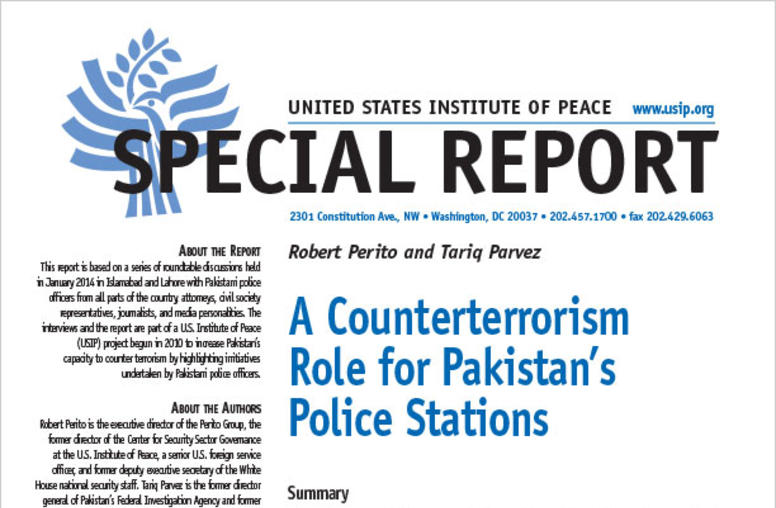
A Counterterrorism Role for Pakistan’s Police Stations
Violence is escalating in Pakistan, both in its megacities and along the border with Afghanistan—from terrorism, to secessionist insurgency, to sectarian conflict, to ethnic turf wars. The police station and the police who staff it, despite their historic role as a symbol of government authority and responsibility for public order, are woefully ill prepared and ill equipped to meet these challenges. This report, part of a project to increase Pakistan’s capacity to combat terrorism, explores t...
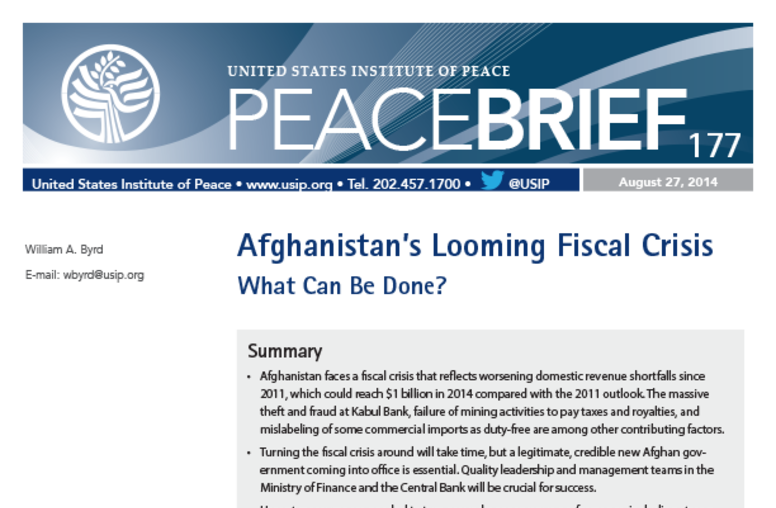
Afghanistan’s Looming Fiscal Crisis: What Can Be Done?
Afghanistan faces a fiscal crisis due in large part to worsening domestic revenue shortfalls. Averting this crisis will require strong leadership from the new Afghan government that will be replacing the Karzai administration. The country’s revenue system and collections need to be improved, corruption reduced, new revenue sources developed and expenditures cut. More international aid also is needed to help stabilize Afghanistan’s budget as the government undertakes these reforms.
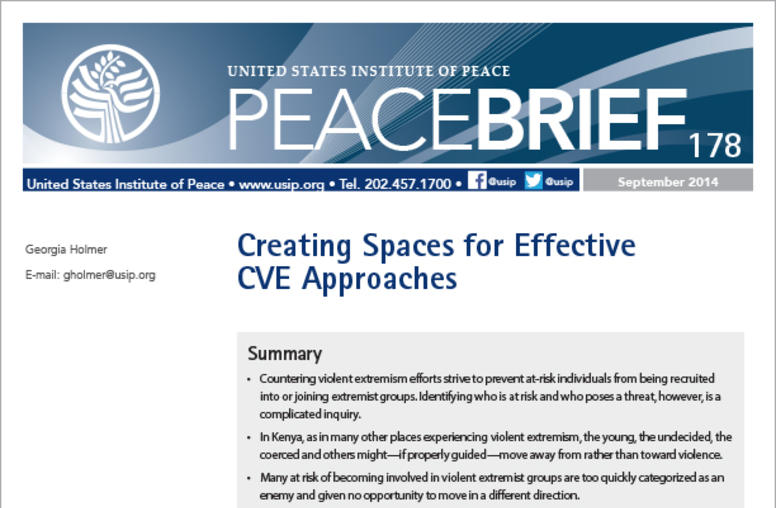
Creating Spaces for Effective CVE Approaches
Unlike other counterterrorism strategies, countering violent extremism (CVE) focuses on preventing individuals from being recruited into or joining violent extremist groups. CVE is a complex endeavor, largely because the reasons individuals become involved in extremist violence are in themselves complex and the dynamics are unique to each conflict. Using Kenya as an example, and drawing on observations from a recent visit, the author explores how promoting a more nuanced understanding of radi...
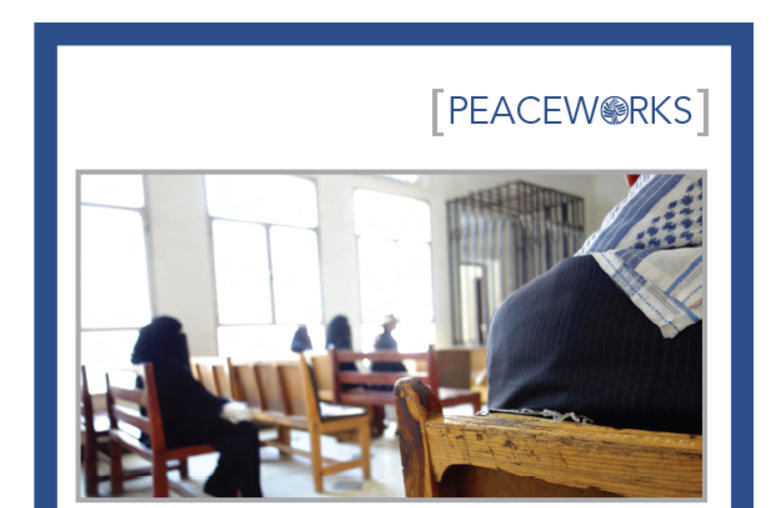
Justice in Transition in Yemen
This research is part of a three-year United States Institute of Peace (USIP) project that explores how Yemen’s rule of law and local justice and security issues have been affected in the post-Arab Spring transition period. A complement to other analytical and thematic pieces, this large-scale mapping provides data on factors influencing justice provision in half of Yemen’s governorates. Its goal is to support more responsive programming and justice sector reform. Field research was managed b...
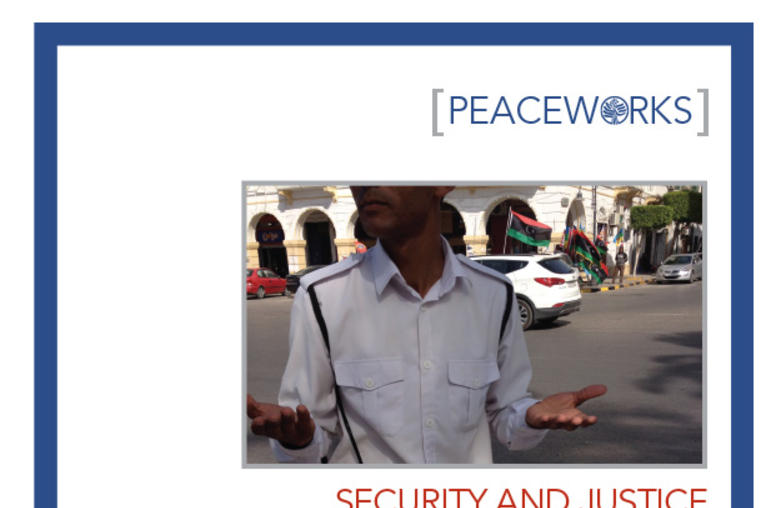
Security and Justice in Post-Revolution Libya
Three years after the death of Muammar Qaddafi and the end of the revolution in Libya, security and justice are stalled and elusive despite the proliferation of security providers. The power of the gun prevails over the rule of law. Many see no end in sight. Based on a nationwide survey and drawn from interviews and focus group sessions, this report—supported by the USIP and the Small Arms Survey—tracks security and justice in Libya from before the revolution through today, its realities, and...
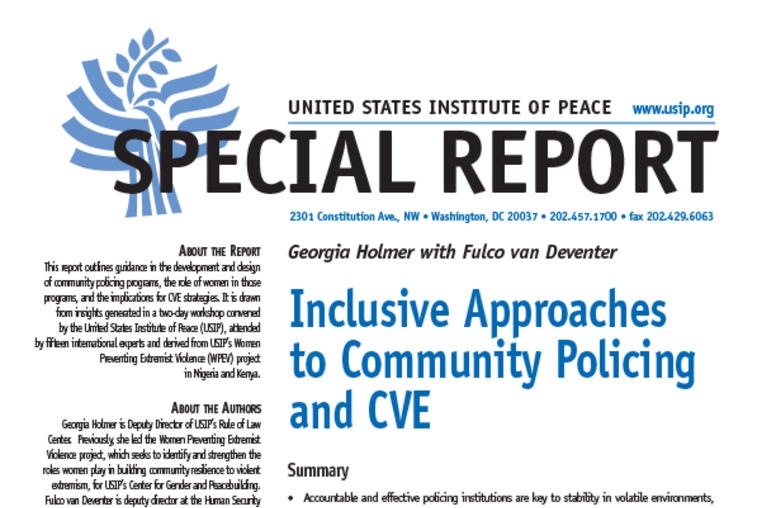
Inclusive Approaches to Community Policing and CVE
What happens when community policing—a strategy that promotes collaboration between the police and a community to ensure safety and security—is implemented in transitional societies, in marginalized communities, or to prevent violent extremism or to engage women in providing community-level security? To ensure that they are not doing more harm than good, security, gender, and peacebuilding practitioners must both expand their understanding of policing methodologies and related assumptions and...
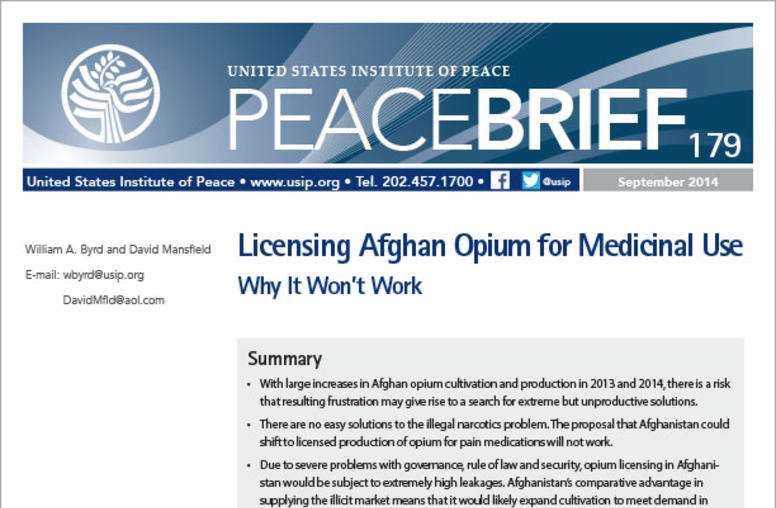
Licensing Afghan Opium for Medicinal Use
Opium production continues to increase in Afghanistan, but there are no easy, one-dimensional solutions to this problem. Afghanistan unfortunately will not be able to join the small group of countries that produce licit opium for medicinal purposes. The opium it currently produces is both illegal and high-cost. Trying to introduce licit production runs the risk that large-scale illicit production will continue in parallel. In the long term, it is unlikely that Afghanistan could compete in the...
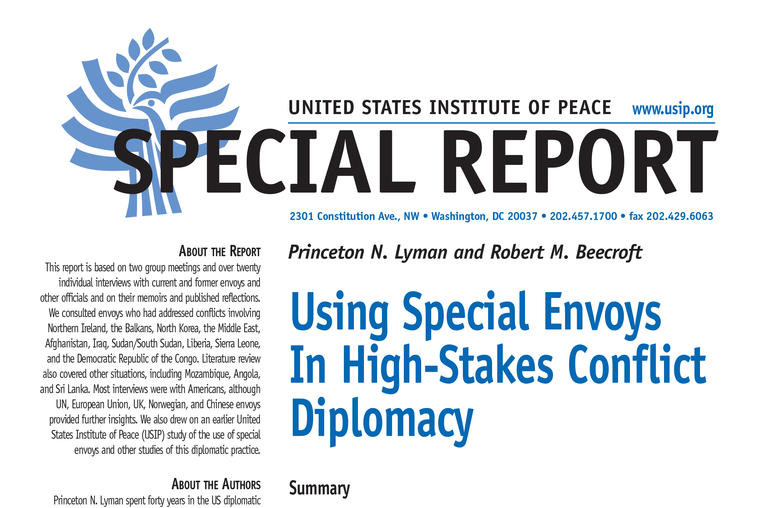
Using Special Envoys In High-Stakes Conflict Diplomacy
Special envoys or representatives have been used by nearly every administration to address high-stakes conflicts and to address situations with a degree of attention outside the capacity of the State Department and other regular bureaucratic structures. This report focuses on the issues surrounding the use of special envoys or representatives and how they can be used most effectively.
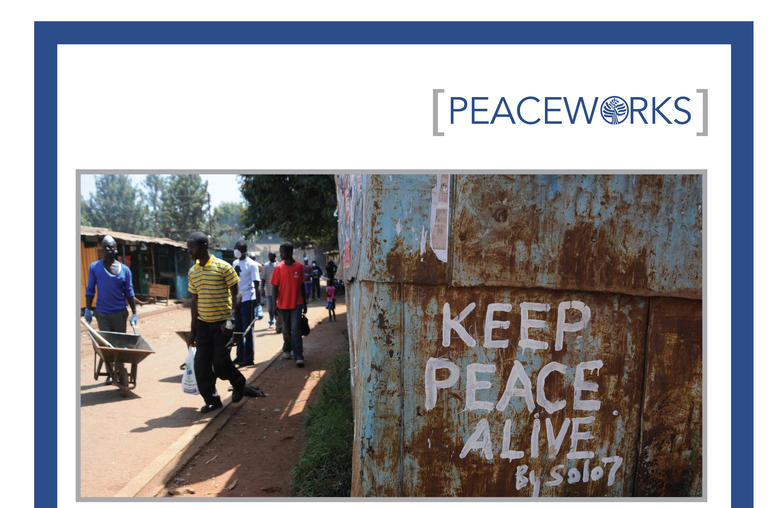
Elections and Violent Conflict in Kenya: Making Prevention Stick
To prevent a recurrence of the widespread violence that left 1,100 dead and 650,000 displaced in the aftermath of the December 2007 Kenyan elections, Kenya and the broader international community initiated a multifaceted peacebuilding effort in the lead-up to the country’s March 2013 elections.
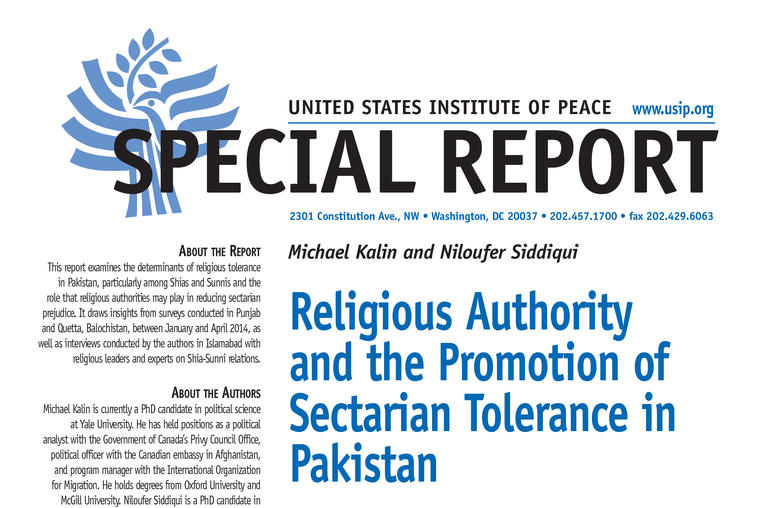
Religious Authority and the Promotion of Sectarian Tolerance in Pakistan
Sunni-Shia tensions have been a recurrent problem in Pakistan for more than three decades, as domestic and international factors have polarized sectarian identities. Recently, the Shia minority has suffered the brunt of the violence. This report examines what has fostered intolerance and tolerance between Sunnis and Shias in Pakistan and the role that religious authorities may play in reducing sectarian prejudice.